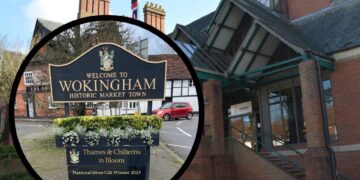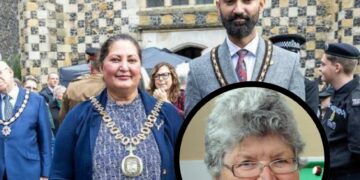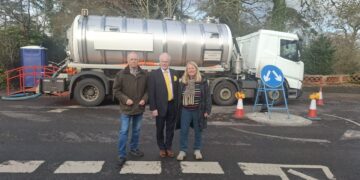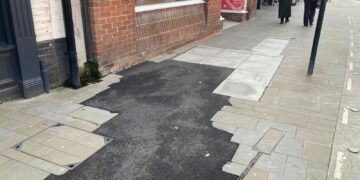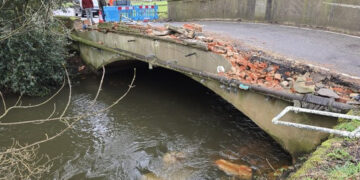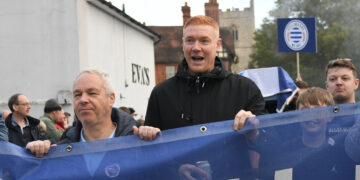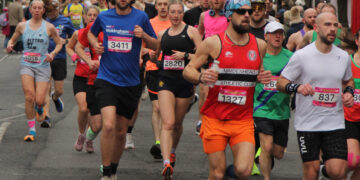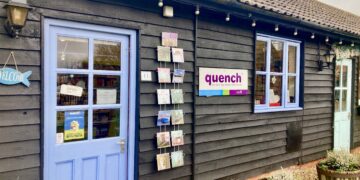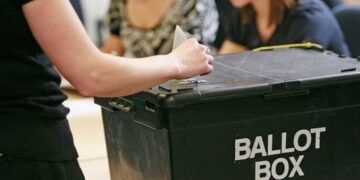A leading human rights campaigner has called on Thames Valley Police to apologise for historic homophobia.
Peter Tatchell, director of the Peter Tatchell Foundation, has written to the chief constable of the force calling on him to take action as a result of the #ApologiseNow campaign, which was backed by Paul O’Grady before his death.
”The Thames Valley police force was very homophobic in past decades and went out of its way to target consenting, victimless behaviour that harmed no one. It wrecked the lives of many LGBT+ people,” said Mr Tatchell, director of the human rights organisation, the Peter Tatchell Foundation.
He said the campaign was not about apologising for enforcing laws that have since been repealed, but instead for the ways in which the laws were enforced: “abusive and threatening ways that would be deemed illegal and unacceptable today”.
The campaign has already secured apologies from the Metropolitan Police, as well as forces covering Sussex, South Yorkshire, and Northumbria.
“The appeal for Chief Constables to apologise is also endorsed by the National Police LGBT+ Network of serving LGBT+ officers,” said Mr Tatchell.
He opens his letter to Thames Valley Police’s CC, Jason Hogg, by thanking him and his officers for their ‘current supportive policies towards the LGBT+ community’, saying was excellent progress.
“In the past, your force, and many other forces, devoted massive and disproportionate resources to hunt down LGBT+ people for consenting behaviour that harmed no one. This zealousness went way beyond mere law enforcement,” he wrote.
It included raiding private birthday parties, arresting same-sex couples for kissing, cuddling and holding hands in the street, and releasing names, addresses and workplaces of arrested men to the media, leading to public humiliation.
The apology, Mr Tatchell said, would help ‘put the past behind us’, and he called on CC Hogg to arrange an appropriate time and place for this.
Responding, a spokesperson for Thames Valley Police said they acknowledged the letter, and the issues it raises, adding they related to a national perspective over a local one.
“In the Thames Valley we serve a diverse population and we are committed to building the trust of all our communities, including our LBGT+ community, through greater visibility, increased transparency and meaningful engagement,” they continued.
“It is important that our workforce represent our communities and we are proud to say that we have a more diverse workforce than ever before. There is a wide range of support available to all our officers and staff which includes an active LGBT+ network.
“We are aware that we have a lot of work to do to improve the trust and confidence our LBGT+ communities have in our force and policing generally.
“Across the force, we have a network of LGBT+ liaison officers who support victims of hate crime, work directly with local specialist organisations and provide advice to senior leaders and investigating officers.”
They added: “We are actively seeking the view and voices of our staff and our communities continue to influence, educate and shape our approach to policing and the issues raised in this letter are themes we are already exploring with them. Their perspectives will inform our response following that activity.”
PETER TATCHELL’S LETTER TO CC JASON HOGG
Dear Chief Constable
My gratitude to you and your officers for your current supportive policies towards the LGBT+ community. It is excellent progress.
However, previously, for many decades, attitudes and practices were very different.
In order to draw a line under the past extreme persecution of LGBT+ people by UK police, including your own force, I hope that you will agree that some expression of remorse is appropriate.
We do not expect an apology from the police for enforcing historic homophobic laws. What we are requesting an apology for, is the often abusive and threatening way those laws were enforced – ways that would be deemed illegal and unacceptable today.
Sir Mark Rowley has already said sorry on behalf of the Metropolitan Police and backed it up with a new LGBT+ plan for London and the appointment of LGBT+ Community Liaison Officers in every London borough.
A similar apology has been made by the Chief Constable of Sussex, Jo Shiner.
We hope you can follow suit.
Their stance is backed by the Chief Constable of Northumbria, Vanessa Jardine, in her capacity as the lead on LGBT+ policy among chief constables across the UK.
The call for Chief Constables to apologise is also endorsed by the National Police LGBT+ Network of serving LGBT+ officers.
Other Chief Constables are actively considering making an apology and are liaising to this end with their officers and local LGBT+ communities.
In the past, your force, and many other forces, devoted massive and disproportionate resources to hunt down LGBT+ people for consenting behaviour that harmed no one. This zealousness went way beyond mere law enforcement.
While you are not responsible for past wrongs, you are head of the force that witch-hunted us and wrecked LGBT+ lives.
I would respectfully request that you put the past behind us by apologising to the LGBT+ community so that we can move forward together.
I hope you recognise the merit and importance of an apology to the LGBT+ community. It would help further improve LGBT+ trust and confidence in the police, which we all want.
In the decades before the full decriminalisation of homosexuality in 2003 in England and Wales, your officers went out of their way to target and arrest gay and bisexual men for consenting, victimless behaviour. They were often excessive, harsh, vindictive and cruel.
There was a de facto policy of sometimes releasing the names, addresses and workplaces of arrested men to the media, which led to public humiliation, ostracism, evictions, sackings and even violent attacks.
In some cases, gay bars, clubs and even private birthday parties were raided. Same-sex couples were arrested for kissing, cuddling and holding hands in the street. Heterosexual couples engaged in similar behaviour were not. This was malicious homophobic policing and it wrecked lives.
Upon conviction, these men were often jailed and beaten in prison. Others were hit with huge fines. Many lost their jobs, homes and marriages. Some were bashed by homophobic mobs, driven to mental breakdowns and attempted or committed suicide.
With the stigma of a criminal conviction for a homosexual offence, a lot of the victims of police shaming had great difficulty in getting jobs and housing. Their lives were ruined by the police targeting consensual acts that harmed nobody.
I hope you might consider a formal apology to the LGBT+ community and that we can arrange an appropriate time and place to do this.
Thank you.
Yours sincerely,
Peter Tatchell,
Director, Peter Tatchell Foundation

